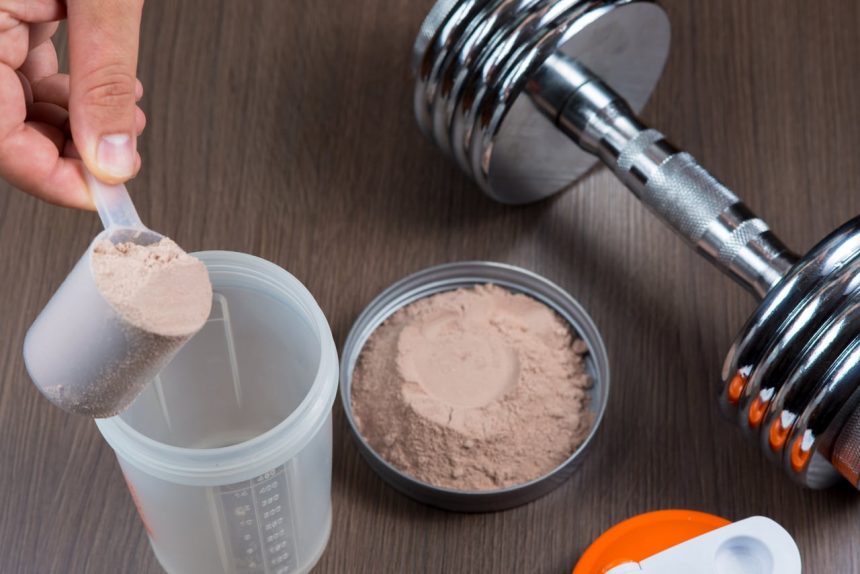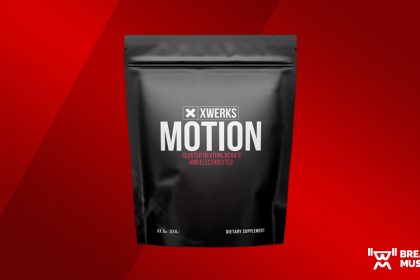Protein powder is a popular choice for many people trying to get fit, lose weight, or just eat healthier. Unlike the common misconception, It is not just for bodybuilders or athletes anymore. Nowadays, you might find it in the pantry of anyone looking to boost their protein intake. But with all the talk about protein powder, there’s also a lot of confusion. Is it safe? Who should use it? We’re here to clear up some of those questions.
First off, protein powder is just a quick way to make sure you get enough protein in your diet. It is essential because protein helps with lots of things in your body, like building muscles, repairing tissues, and even keeping your hunger in check. There are different kinds of protein powder made from both animal and plant sources. It means there’s something for everyone, whether you eat meat or not.
But with so many options out there, you have to be smart about picking the right one. Some protein powders are better quality than others, and some might have ingredients you don’t want. That’s why it’s super important to read the label before you buy. This article talks about some of the biggest myths around protein powder and shares the facts. It will help you make the best choice for your health.
Understanding Protein Powder Nutrition and Composition
Protein powder is a supplement that people often associate with gym enthusiasts and athletes. However, its benefits extend far beyond muscle building. Essentially, protein powder is a concentrated source of protein from animal or plant foods. Food sources like dairy, eggs, rice, or peas transform into a convenient powder form to make protein powder. This powder helps enhance muscle repair, support tissue health, and balance hormones and enzymes. It is especially useful for those looking to manage their weight or muscle tone.
Protein plays a crucial role in your body. It acts as the foundational element of muscle, bone, and skin. Consuming adequate amounts of high-quality protein helps maintain your health and supports long-term satiety. As a result, it reduces the urge to snack frequently.
While it is ideal to get protein directly from foods such as nuts, seeds, and beans, protein powders offer a quick and efficient way to supplement dietary intake. It is particularly beneficial when particular nutritional needs are hard to meet through diet alone.
The power of protein powder lies in its amino acid content, which includes essential amino acids that the body can’t produce. Hence, one should obtain these amino acids through diet. Protein powders offer a convenient way to get complete protein, containing all nine essential amino acids. Although some plant-based proteins might lack one or more of these amino acids, whey protein is an example of protein powder offering all essential amino acids. Understanding the amino acid profile of a protein powder (usually detailed on the product’s nutritional label) can guide users in choosing a product that best fits their dietary needs and health goals.
Protein Powder: Types and Uses
Protein powder isn’t just one-size-fits-all. There are various types, each with its benefits, suited for different dietary needs and health goals. Whether you’re a gym enthusiast, someone looking to improve their diet, or exploring vegetarian or vegan options, there’s a protein powder out there for you. Let’s explore the different types of protein powders to help you make informed choices tailored to your dietary needs and health goals.
Whey Protein Powder: The Go-To Choice
Whey protein is derived from milk and is favoured for its high quality and quick absorption by the body. It’s a “complete” protein, meaning it contains all the essential amino acids necessary for muscle repair and growth. Ideal for athletes and those looking to increase their protein intake, whey protein supports muscle recovery after workouts. There are a few types of whey protein:
- Whey Concentrate: This form is less processed and contains some fat and carbs along with protein. It’s a solid option for those looking for a balance of nutrients.
- Whey Isolate: Higher in protein and lower in fat and carbs, whey isolate is excellent for those cutting calories or with lactose intolerance.
- Whey Hydrolysate: Also known as hydrolysed whey, this form is pre-digested for faster absorption. It’s often used in medical protein supplements and infant formulas.
Casein Protein: The Nighttime Protein
Like whey, casein protein comes from milk but is digested and absorbed much more slowly. This slow release makes casein ideal for taking before bed. That is because it provides a steady supply of amino acids to your muscles overnight. It’s particularly suited for those looking to prevent muscle breakdown and promote muscle growth while they sleep.
Plant-Based Protein: A Vegan’s Best Friend
For vegetarians, vegans, or those with dairy allergies, plant-based proteins offer an excellent alternative. These include:
- Soy Protein: A complete protein that rivals whey in its nutritional profile. It’s a good option for those looking for a dairy-free protein that supports muscle growth.
- Pea Protein: Rich in iron and arginine, pea protein is excellent for muscle growth and those who may have allergies to dairy or soy.
- Hemp Protein: Besides providing all nine essential amino acids, hemp protein is also rich in omega-3 and omega-6 fatty acids. That makes it a nutrient-packed option for vegans.
- Rice Protein: Often combined with pea protein to enhance its amino acid profile, rice protein is another excellent plant-based option.
Egg White Protein: For the Health Conscious
Egg white protein is made from the whites of eggs. It’s high in protein while being low in carbs and fat. TJat makes it an excellent choice for those looking to lose weight or maintain a lean physique. It’s also a complete protein, providing all the essential amino acids your body needs.
Collagen Protein: Beyond Muscle
Collagen protein is derived from animal connective tissues. It offers benefits for skin, hair, nails, and joints. While not a complete protein, it’s a good supplement for those looking to support their overall health beyond just muscle growth.
When choosing a protein powder, consider your dietary restrictions, health goals, and taste preferences. And remember, while protein powders can supplement your diet, getting nutrients from whole foods should always be the priority.
Benefits of Protein Powder
Protein powder is not just a staple for athletes and bodybuilders but a versatile supplement for anyone looking to enhance their overall health and dietary intake. Let’s explore the benefits of protein powders.
1. Weight Management
Protein powder plays a pivotal role in weight management strategies. Its high protein content promotes satiety, meaning it can help you feel full for more extended periods. This sensation of fullness can lead to reduced calorie intake throughout the day. As a result, it will support your weight loss and maintenance efforts.
A comprehensive review in 2017 highlighted whey protein’s effectiveness in reducing body weight and fat mass among overweight and obese individuals. By incorporating protein-rich supplements into your diet, you might find it easier to control portions and curb frequent snacking. That will help you align with your weight management goals.
2. Muscle Growth: Beyond the Gym
For those seeking to build muscle, protein powder offers a foundational element necessary for muscle development. The synthesis of new muscle fibres relies heavily on the availability of protein, particularly after workouts when muscle repair occurs.
A 2018 meta-analysis demonstrated that protein supplementation could significantly enhance muscle size and strength when coupled with resistance training. Interestingly, the benefits of protein are universal, aiding muscle growth in both men and women. However, the degree of effectiveness may differ with age.
3. Recovery After Exercise
The importance of protein extends to post-exercise recovery. Engaging in physical activity, especially strenuous workouts, can lead to muscle soreness and tissue damage. Protein powder aids in the repair and rebuilding of these tissues. As a result, it leads to quicker recovery times and reduces the impact of muscle soreness.
Numerous studies underscore protein supplements’ role in improving muscle performance and enhancing the body’s ability to synthesise muscle protein post-exercise. This facet of protein powder makes it invaluable for athletes looking to maintain consistent training regimens without being sidelined by prolonged recovery periods.
4. Added Nutrition
Meeting daily protein requirements can be challenging, especially for individuals with specific dietary restrictions or increased nutritional needs. Recommended Dietary Allowance (RDA) for protein is around 0.8 grams of protein per kilogram of body weight. It is a target which is not always easily achieved through diet alone. Protein powder is a practical solution, especially for those who may struggle to consume sufficient protein, such as vegans, vegetarians, older adults, or individuals with certain chronic conditions.
For people engaged in intense physical activity or those in older age brackets, protein needs may double. That necessitates a more focused approach to protein consumption. Protein powder provides a convenient and efficient way to meet these elevated requirements. It ensures that your body has the necessary building blocks for health and performance.
Busting the Myths Around Protein Powder: Separating Fact from Fiction
Protein powder often finds itself at the centre of many debates, leading to the spread of various myths. Let’s take a closer look and separate the facts from the fiction. The following sections will ensure everyone can make informed decisions about their health and diet.
Myth 1: Protein Powders are Only for Bodybuilders
Many believe that protein powders are only for bodybuilders or professional athletes. However, the truth is that protein is a fundamental nutrient that benefits everyone. Whether you are an office worker, a busy parent, or someone trying to manage your weight, protein powder can be a convenient way to ensure you are meeting your daily protein needs. It supports muscle repair, aids in recovery after physical activity, and can help you feel fuller for longer. As a result, it will assist you in weight management.
Myth 2: All Protein Powders are the Same
The variety of protein powders on the market is vast. Each type serves different dietary needs and preferences. Whey protein is renowned for its fast absorption and high biological value. That makes it ideal for post-workout recovery. On the other hand, casein protein digests slowly, providing a gradual release of amino acids. It is perfect for sustaining muscle nourishment overnight. Plant-based options like pea, rice, and hemp proteins cater to vegetarians, vegans, and those with dairy intolerances. Plant proteins offer inclusive alternatives that ensure everyone has access to quality protein sources.
Myth 3: Consuming Protein Powder Will Automatically Lead to Muscle Gain
Contrary to popular belief, simply adding protein powder to your diet won’t result in bulging muscles. Muscle growth requires a combination of consistent strength training, adequate calorie intake, and a balanced diet rich in proteins, carbohydrates, and fats. Protein powders can supplement this process by providing the necessary building blocks for muscle repair and growth, but they are just one piece of the puzzle.
Myth 4: Protein Powders Are Unnatural and Unsafe
The concern that protein powders are “unnatural” or unsafe stems from misconceptions about their sourcing and production. High-quality protein powders come from foods we eat, like milk (for whey and casein), peas, hemp, and soy. They undergo a process to concentrate or isolate the protein, making it more accessible. It’s essential to choose reputable brands like the HealthifyMe Store that adhere to strict quality control and transparency about their ingredients. This way, you can incorporate protein powders into your diet safely.
Myth 5: You Can Get All Your Protein from Food, So Supplements Are Unnecessary
While it’s true that whole foods should be the primary source of nutrients, certain circumstances can make protein powders a practical addition to your diet. Busy lifestyles, dietary restrictions, and increased protein needs due to physical activity or health conditions might make it challenging to consume adequate protein through food alone. In such cases, protein powders serve as a convenient, efficient way to fill the gap.
Myth 6: Plant-Based Protein Powders Aren’t as Effective as Animal-Based Ones
This myth stems from the belief that plant-based proteins are incomplete, lacking some essential amino acids. However, many plant-based protein powders combine different sources, such as peas and rice, to create a complete amino acid profile. Recent studies have shown that when matched for protein content, plant-based proteins can be just as effective as their animal-based counterparts in promoting muscle growth and recovery. The key is to choose a well-balanced product that fits your dietary preferences and health goals.
Potential Issues with Protein Powders
While protein powders are a convenient supplement to help meet dietary protein needs, it’s important to approach their use with awareness and caution. Here’s a breakdown of potential adverse effects associated with protein powders.
1. Digestive Issues
Some individuals may experience digestive discomfort from protein powders, especially those based on dairy, such as whey or casein. This discomfort often stems from lactose intolerance or sensitivities to dairy proteins. Symptoms can include bloating, gas, and diarrhoea. Opting for plant-based protein powders, such as pea or rice protein, may alleviate these issues for those with dairy sensitivities.
2. Added Sugars and Calories
A common misconception about protein powders is that they’re all low in sugars and calories. However, some products contain added sugars to enhance flavour, which can contribute to unwanted calorie intake and potentially lead to weight gain if not used thoughtfully. Checking the nutritional label for sugar content and opting for no or low-sugar options can help mitigate this risk.
3. Nutrient Imbalance
Relying heavily on protein powders at the expense of whole foods can lead to an imbalance in nutrient intake. Whole foods provide a broad spectrum of essential vitamins, minerals, and other nutrients that protein powders may lack. It’s crucial to use protein supplements as an adjunct to a balanced diet rather than a replacement for whole food sources.
4. Quality and Purity Concerns
The supplement industry, including protein powders, is less strictly regulated than food products and medicines. That raises concerns about the quality and purity of some protein powders. Some products may contain contaminants or not live up to their protein content claims. Opting for products that have been third-party tested and certified can help ensure you are consuming a safe and high-quality supplement.
5. Potential for Heavy Metal Contamination
Investigations have found that some protein powders contain heavy metals like lead, arsenic, cadmium, and mercury at levels that could pose health risks over time. While these levels are typically below harmful thresholds, long-term exposure could lead to health issues. Selecting protein powders from reputable brands committed to testing and transparency can help minimise exposure to these contaminants.
6. Long-term Health Effects Unknown
Research on the long-term health effects of regular protein powder consumption is still evolving. While protein is a critical nutrient for bodily functions, excessive intake, especially from supplements, may have unknown health implications over time. It’s advisable to follow recommended dietary allowances for protein and consult with a healthcare provider or a dietitian when considering protein supplementation, especially at high levels.
Choosing A Protein Powder: What to Consider
When navigating the vast selection of protein powders available, making the right choice can seem challenging. Here’s a guide to help you choose the best protein powder.
1. Determine Your Dietary Needs
Understanding your specific dietary needs is the first step in choosing a suitable protein powder. If you are lactose intolerant or have a sensitivity to dairy, avoid choosing whey concentrates. That is because they are higher in lactose. Instead, consider whey isolate or plant-based proteins, which are lower in lactose. For those aiming to lose fat while preserving muscle, whey isolate, with its higher protein content and lower fat and carbohydrates, might be ideal.
2. Consider the Protein Source
The source of protein is a critical factor. Whey protein, derived from milk, is a popular choice for its complete amino acid profile and rapid absorption. It is ideal for post-workout recovery. Plant-based options, such as pea, rice, or hemp protein, cater to vegans and vegetarians. They offer a high fibre content and a lower fat profile. At the HealthifyMe Store, you can find a range of protein powders, including those free from added sugar or artificial sweeteners. HealthifyMe Protein powders are a healthier addition to your diet.
3. Look for Quality and Purity
With the supplement market not strictly regulated by the FDA, it’s vital to choose products that are third-party tested for quality and purity. This testing ensures that the product contains exactly what the label says, without any harmful additives or contaminants. HealthifyMe Store takes pride in offering protein powders that meet these stringent quality standards.
4. Complete vs. Incomplete Proteins
Understanding the difference between complete and incomplete proteins is important, especially for plant-based protein powders. A complete protein contains all nine essential amino acids necessary for the body’s needs. While some plant-based proteins may be incomplete on their own, blends of different plant proteins can provide a complete amino acid profile. However, as long as your diet includes a variety of protein sources, choosing between complete and incomplete proteins becomes less critical.
5. Personal Taste and Preferences
Ultimately, the best protein powder for you is one that you enjoy consuming. Taste, mixability, and how well they complement your favourite recipes or shakes are important considerations. The HealthifyMe Store offers a variety of flavours and formulations to suit different taste preferences, ensuring that adding protein to your diet is both enjoyable and beneficial.
How much Protein Powder Per Day
The most important consideration is knowing how much protein powder per day is safe. To clear the air, aim to reach the. Recommended Dietary Allowance (RDA) for protein is around 0.8 grams of protein per kilogram of body weight.
HealthifyMe Suggestions
Protein is also a crucial part of the systems that provide energy and transport oxygen throughout the body in the blood. It also aids in the production of antibodies, which fight infections and disorders, as well as the maintenance and regeneration of cells. Protein-rich foods include dairy products, eggs, meat, fish, poultry, nuts, seeds, tofu, tempeh, beans, peas, lentils, and quinoa. Combine 1/2 cup yoghurt, a scoop of protein powder, 1/2 cup mixed fruit, 1 tablespoon peanut butter, and 1 tablespoon chia seeds. Try this protein powder yoghurt breakfast to keep you active throughout the morning.
Are Protein Powders Safe? The Final Word
Understanding the nuances of protein powders can be like finding your way through a maze. The big takeaway? Protein powders are safe for most people when they choose wisely and use them smartly. These supplements are not just for gym enthusiasts but for anyone looking to add a bit more protein to their diet.
Remember, the key is balance and making sure these powders complement your meals, not replace them. Whether you are looking to build muscle, lose weight, or just need a quick protein boost, there’s protein powder out there for you. Keep it simple, read those labels, and you will be on your way to a healthier you.
Disclaimer: The purpose of this article is just to disperse knowledge and raise awareness. It does not intend to replace medical advice from professionals. For further information, please contact our certified nutritionists Here.
Research Sources
httpss://www.physiology.org/doi/full/10.1152/ajpendo.00590.2013
Adverse Effects Associated with Protein Intake Above the Recommended Dietary Allowance for Adults
ISSN exercise & sports nutrition review update: research & recommendations
Effect of timing of whey protein supplement on muscle damage markers after eccentric exercise
Muscle matters: maintaining visible differences between women and men.
International Society of Sports Nutrition Position Stand: protein and exercise
Pre- versus post-exercise protein intake has similar effects on muscular adaptations.
Nutrient Timing: A Garage Door of Opportunity?
The hidden dangers of protein powders
Frequently Asked Questions (FAQs)
Q: What are the benefits of consuming protein powder, and why do people use it?
A: Protein powder offers several benefits, including aiding muscle repair and growth, supporting weight management by promoting satiety, enhancing athletic performance, and providing a convenient source of high-quality protein. People use it to supplement their diet, especially when their protein needs are not met through food alone due to lifestyle, dietary preferences, or increased demands from physical activity.
Q: Can protein powder help with weight loss, or is it mainly for muscle building?
A: Protein powder can support both weight loss and muscle building. Its high protein content helps people feel fuller for longer, potentially reducing overall calorie intake, which is beneficial for weight loss. For muscle building, protein powder provides the essential amino acids needed for muscle repair and growth, primarily when used along with resistance training.
Q: Are there specific types of protein powder, and how do I choose the right one for my needs?
A: Yes, there are various types of protein powder, including whey, casein, soy, pea, and hemp, each with unique properties. Choosing the right one depends on dietary preferences, allergies, and specific health goals. For example, whey protein is popular for muscle building, while plant-based options like pea protein are suitable for vegans or those with dairy allergies.
Q: How does protein powder benefit athletic performance and recovery after exercise?
A: Protein powder supports athletic performance by providing the necessary nutrients for muscle repair, growth, and recovery. Consuming protein powder after exercise can reduce muscle soreness, accelerate recovery, and enhance muscle protein synthesis, which is vital for athletes looking to improve performance and achieve training goals.
Q: Can protein powder be used as a meal replacement, and is it nutritionally sufficient?
A: While protein powder can complement a meal or serve as a convenient snack, it should not be relied upon as a sole meal replacement. Whole foods provide a broader range of essential nutrients, vitamins, and minerals necessary for overall health. However, in a pinch, a well-rounded protein shake, including fruits, vegetables, and healthy fats, can be a nutritious meal substitute.
Q: Are there potential side effects or risks associated with regular consumption of protein powder?
A: Potential side effects of consuming protein powder may include digestive discomfort, especially for those with lactose intolerance or allergies to specific ingredients. Overconsumption can lead to excess calorie intake and, in rare cases, kidney strain. Choosing high-quality, third-party-tested protein powders and consuming them as part of a balanced diet can minimise risks.
Q: Do different protein sources in powder form offer distinct health benefits?
A: Yes, different protein sources offer unique benefits. For instance, whey protein is known for its rapid absorption and muscle repair properties, while plant-based proteins like hemp provide additional fibre, healthy fats, and minerals. The choice of protein source can be tailored to meet individual health goals and dietary restrictions.
Q: Can protein powder be beneficial for vegetarians or vegans looking to meet their protein needs?
A: Absolutely. Plant-based protein powders, such as pea, rice, or hemp, are excellent options for vegetarians and vegans. These powders help meet protein needs without animal products, supporting muscle growth, recovery, and overall health within a plant-based diet framework.
Q: What is the optimal timing for consuming protein powder to maximise its benefits?
A: The optimal timing can vary depending on individual goals. Consuming protein powder within a window of 30 minutes to two hours after exercise can maximise muscle recovery and growth. For weight management, protein powder can be used as a satiating snack between meals to help reduce overall calorie intake.
Q: Are there age-specific considerations for using protein powder, such as for children or older adults?
A: Yes, nutritional needs vary by age. Children generally should meet their protein requirements through food, given their smaller stomachs and the importance of a balanced diet for growth. Older adults may benefit from protein supplements to counteract age-related muscle loss, provided they have no health conditions that contraindicate their use. Always consult with a healthcare provider to determine the appropriate intake for specific age groups and health conditions.






